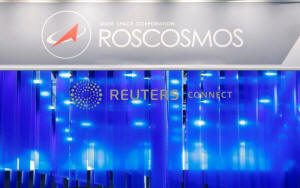|
Russian scientists find defect in new
heavy lift space rocket engine
 Send a link to a friend
Send a link to a friend
 [January 19, 2019]
MOSCOW (Reuters) - Scientists have
discovered a defect in the engines of Russia's new flagship heavy lift
space rocket that could destroy it in flight, an apparent setback to a
project President Vladimir Putin has said is vital for national
security. [January 19, 2019]
MOSCOW (Reuters) - Scientists have
discovered a defect in the engines of Russia's new flagship heavy lift
space rocket that could destroy it in flight, an apparent setback to a
project President Vladimir Putin has said is vital for national
security.
The Angara A5, which was test-launched in 2014, is being developed to
replace the Proton M as Russia's heavy lift rocket, capable of carrying
payloads bigger than 20 tonnes into orbit. A launch pad for the new
rocket is due to open in 2021.
In July, Putin said the Angara A5 had "huge significance" for the
country's defense and called on space agency Roscosmos to work more
actively on it and to meet all its deadlines.
The issue with the Angara A5 was brought to attention by scientists at
rocket engine manufacturer Energomash in a paper ahead of a space
conference later this month.
The paper, reported by RIA news agency on Friday and published online,
said the engines of the Angara A5 could produce low frequency
oscillations that could ultimately destroy the rocket.
A special valve had been fitted to mitigate the issue, but in some cases
the oscillations continued, it said. Energomash did not immediately
reply to a request for comment.
[to top of second column]
|

The logo of Russian Federal Space Agency Roscosmos is pictured at
the ILA Berlin Air Show in Schoenefeld, south of Berlin, Germany,
June 1, 2016. REUTERS/Fabrizio Bensch

Russia's space program has been dogged by mishaps in recent years,
including failed cargo delivery missions into space and the aborted
launch in October of the manned Soyuz mission to the International
Space Station.

Russia's current heavy lift rocket, the Proton M, has had a nearly
10 percent failure rate in more than 100 launches since it entered
service in 2001, creating pressure to reorganize and improve the
space program.
(Reporting by Tom Balmforth)
[© 2019 Thomson Reuters. All rights
reserved.]
Copyright 2019 Reuters. All rights reserved. This material may not be published,
broadcast, rewritten or redistributed.
Thompson Reuters is solely responsible for this content. |